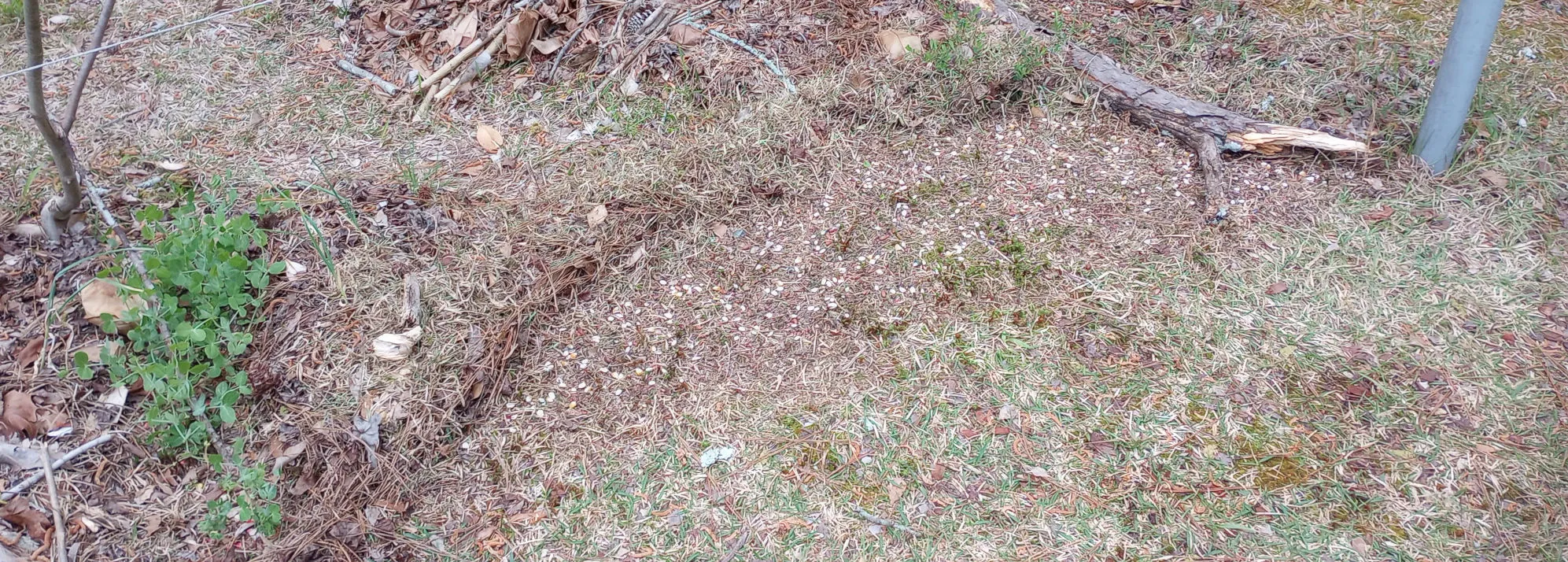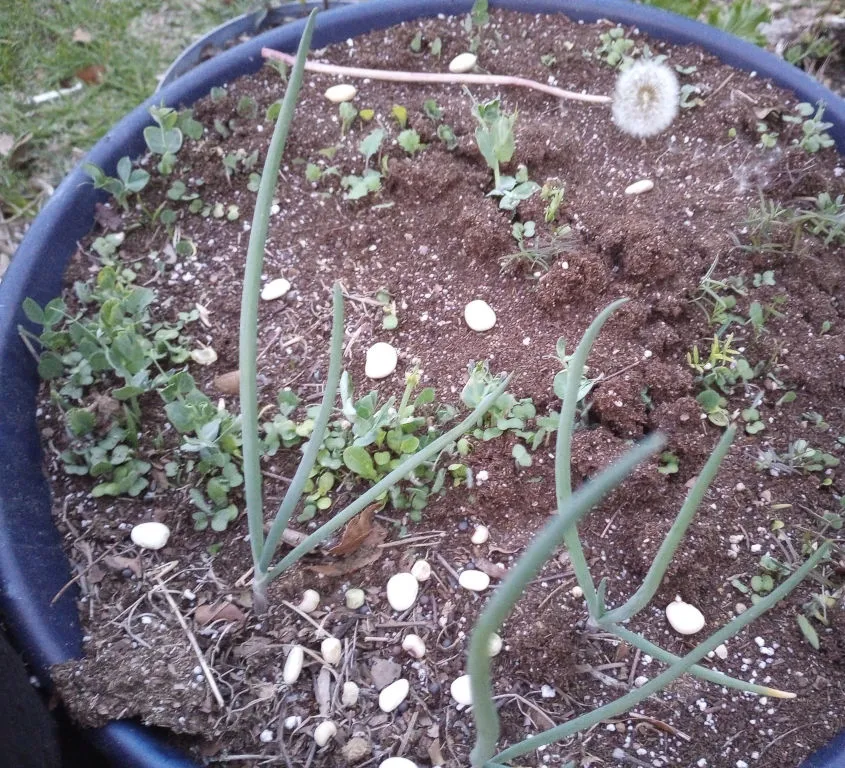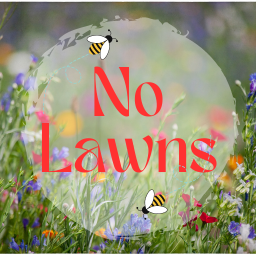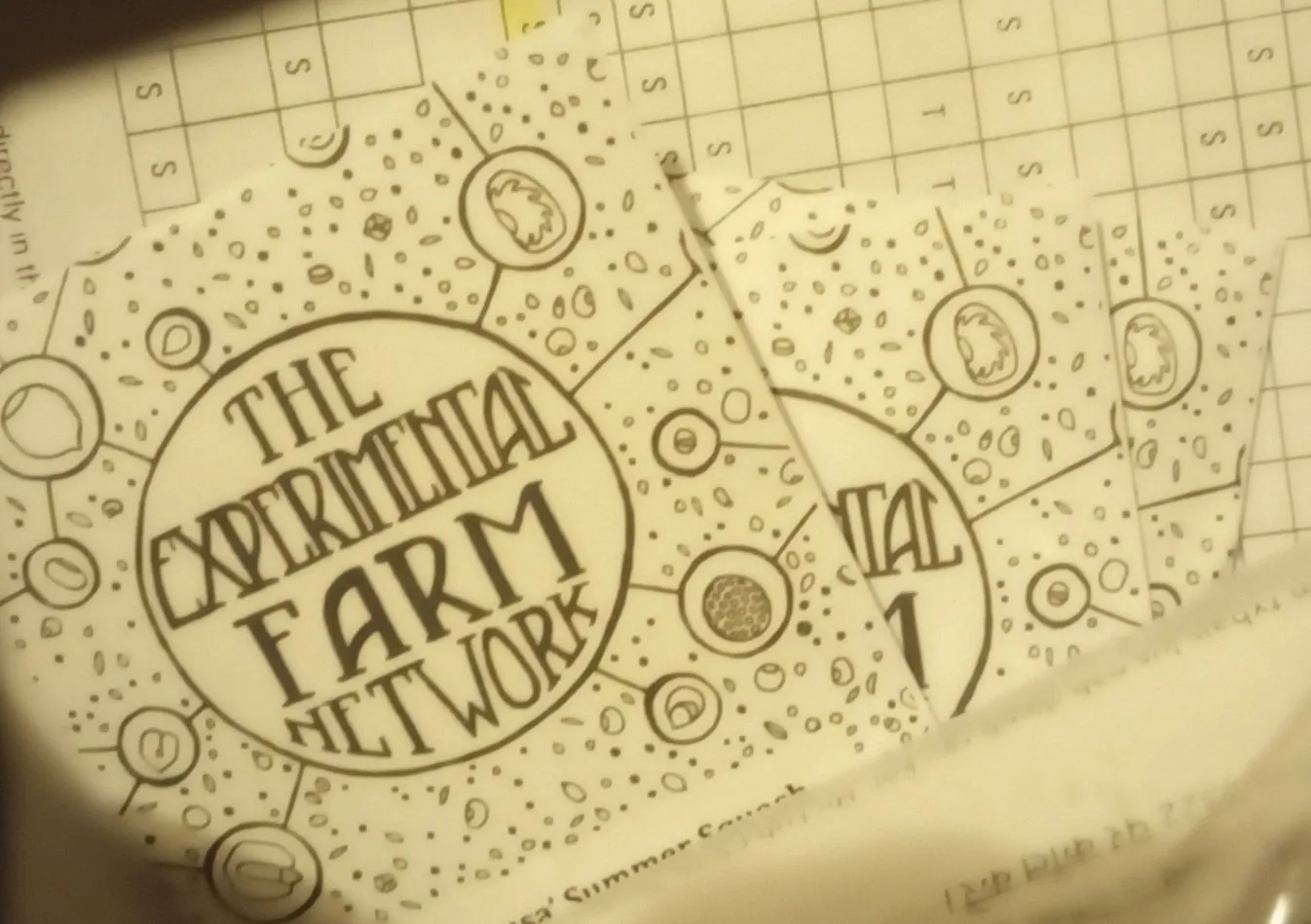Yes, but mines ruin villages and their water supply; and if the villagers protest, then the company may kill them
natural gardener, anti-authoritarian
avatar—green onion scapes, seeds, dandelion, sprouts
banner—Experimental Farm Network seed packets: pretty neat & simple, black & white graphic art
- 1 Post
- 17 Comments
I feel the need to clarify that these types of projects usually don’t bring “generational jobs and careers” but usually bring outside workforce who will leave when damage done.
 garden plot corner
garden plot cornermade a tiny berm out of all the leaves I raked and the grass I cut from the garden bed!

I was just talking about an alternative to those farmers. The whole thread was about those farmers, not the vote. If they want to restore the damaged landscapes, they could leave that to us as well, because we could cover the damaged landscapes with humanure compost that will break down most toxins. (Kitchen scraps also go into humanure compost.)
Also, besides mulch and native plants, we could grow drought-tolerant crops instead of irrigating, and to the degree that we can make gardener communities, we can scale up our gardens to farms.

We could garden and farm by ourselves and the communities we can make, staying as close to nature as possible, without tilling, irrigating, or using chemicals, and by using mulch and some native plants instead.

Yeah, but from an anthropologist view, cities (and specialization) have basically been the downfall of our species. I don’t know; I guess bolo’bolo mentioned some city-like places supported by farms. (and Çatalhöyük)

Don’t do it. Quit fighting nature. Move inland. Quit living in cities! Okay, I know no one is going to do any of this.

 3·1 year ago
3·1 year agoBenjamin Franklin wanted everyone to be apprentices.

 1·1 year ago
1·1 year agoI like this UI better because it’s more compact than Photon, but I like both so far because it’s easy to turn on dark mode. I also like the previews better than old.slrpnk. I like how Alexandrite discussions open up in something that lays over the rest of the content, and I could close the sidebar to get a better view. I’d like it better if I didn’t have to scroll back up to the top to close the discussion, but maybe that’s a work in progress or something I could post as a wish on their development site.
PS—Oh, I can just press Esc. Oh, I think there’s also a navigation bar that will let me close the thread.
Also, I like how it shows the number of unread posts since my last visit, but I don’t think there’s a way to either take me to these posts or to highlight them while I’m scrolling the thread.
Privet also does just fine as a hedge, and people in the UK actually use it for this purpose. Ironically, that’s where I’ve seen privet growing—along borders, so people who hate privet might as well leave the stuff unless it’s in their way.

For biodiversity, for example, if the rate at which species disappear is less than 10 times the average extinction rate over the last 10 million years, that is deemed acceptable.
In reality, however, extinctions are occurring at least 100 times faster than this so-called background rate, and 10 times faster than the planetary boundary limit.
Will the miracle of life actually survive our self-induced extinction?
I would just do the cover crops along with some nitrogen fixers for several years.
PS – I would keep getting the lawn clippings and use them to mulch my plants.
Try this search engine for native plants in your zip code.

 2·1 year ago
2·1 year agoTry clover again for the fall and winter. You can sow clover seeds until late spring. If necessary, you can start back again in mid summer.

 1·1 year ago
1·1 year agoI don’t wait for rain, but when I see there’s going to be a few days of rain, I try to get some seeds out there before it rains. A few days of rain might give the seeds a good start, and then, you could mulch the seedlings to help them make it to the next rainfall. You could use a handheld tool to cut competing plants like grass and use them as mulch. If you can spend a little time every day or week, then you’ll figure out what works.

 2·1 year ago
2·1 year agoMany people without land can practice with a flower pot. They can learn all about germination, how a plant looks, harvesting, and collecting seeds! Sometimes, people are sharing land or renting out parcels for gardening, and sometimes, people use an abandoned lot.




Why doesn’t he visit the United States?